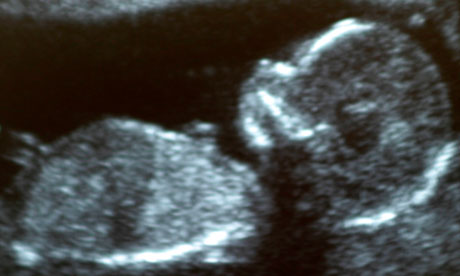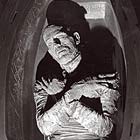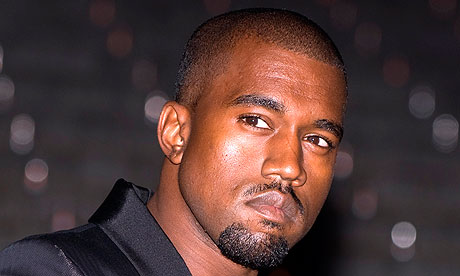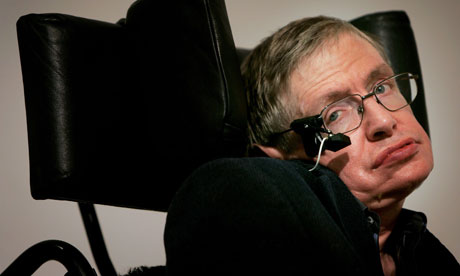Women's rights campaigners see the creeping criminalisation of pregnant women as a new front in the culture wars over abortion
- guardian.co.uk,

Rennie Gibbs is accused of murder, but the crime she is alleged to have committed does not sound like an ordinary killing. Yet she faces life in prison in Mississippi over the death of her unborn child.
Gibbs became pregnant aged 15, but lost the baby in December 2006 in a stillbirth when she was 36 weeks into the pregnancy. When prosecutors discovered that she had a cocaine habit – though there is no evidence that drug abuse had anything to do with the baby's death – they charged her with the "depraved-heart murder" of her child, which carries a mandatory life sentence.
Gibbs is the first woman in Mississippi to be charged with murder relating to the loss of her unborn baby. But her case is by no means isolated. Across the US more and more prosecutions are being brought that seek to turn pregnant women into criminals.
"Women are being stripped of their constitutional personhood and subjected to truly cruel laws," said Lynn Paltrow of the campaign National Advocates for Pregnant Women (NAPW). "It's turning pregnant women into a different class of person and removing them of their rights."
Bei Bei Shuai, 34, has spent the past three months in a prison cell in Indianapolis charged with murdering her baby. On 23 December she tried to commit suicide by taking rat poison after her boyfriend abandoned her.
Shuai was rushed to hospital and survived, but she was 33 weeks pregnant and her baby, to whom she gave birth a week after the suicide attempt and whom she called Angel, died after four days. In March Shuai was charged with murder and attempted foeticide and she has been in custody since without the offer of bail.
In Alabama at least 40 cases have been brought under the state's "chemical endangerment" law. Introduced in 2006, the statute was designed to protect children whose parents were cooking methamphetamine in the home and thus putting their children at risk from inhaling the fumes.
Amanda Kimbrough is one of the women who have been ensnared as a result of the law being applied in a wholly different way. During her pregnancy her foetus was diagnosed with possible Down's syndrome and doctors suggested she consider a termination, which Kimbrough declined as she is not in favour of abortion.
The baby was delivered by caesarean section prematurely in April 2008 and died 19 minutes after birth.
Six months later Kimbrough was arrested at home and charged with "chemical endangerment" of her unborn child on the grounds that she had taken drugs during the pregnancy – a claim she has denied.
"That shocked me, it really did," Kimbrough said. "I had lost a child, that was enough."
She now awaits an appeal ruling from the higher courts in Alabama, which if she loses will see her begin a 10-year sentence behind bars. "I'm just living one day at a time, looking after my three other kids," she said. "They say I'm a criminal, how do I answer that? I'm a good mother."
Women's rights campaigners see the creeping criminalisation of pregnant women as a new front in the culture wars over abortion, in which conservative prosecutors are chipping away at hard-won freedoms by stretching protection laws to include foetuses, in some cases from the day of conception. In Gibbs' case defence lawyers have argued before Mississippi's highest court that her prosecution makes no sense. Under Mississippi law it is a crime for any person except the mother to try to cause an abortion.
"If it's not a crime for a mother to intentionally end her pregnancy, how can it be a crime for her to do it unintentionally, whether by taking drugs or smoking or whatever it is," Robert McDuff, a civil rights lawyer asked the state supreme court.
McDuff told the Guardian that he hoped the Gibbs prosecution was an isolated example. "I hope it's not a trend that's going to catch on. To charge a woman with murder because of something she did during pregnancy is really unprecedented and quite extreme."
He pointed out that anti-abortion groups were trying to amend the Mississippi constitution by setting up a state referendum, or ballot initiative, that would widen the definition of a person under the state's bill of rights to include a foetus from the day of conception.
Some 70 organisations across America have come together to file testimonies, known as amicus briefs, in support of Gibbs that protest against her treatment on several levels. One says that to treat "as a murderer a girl who has experienced a stillbirth serves only to increase her suffering".
Another, from a group of psychologists, laments the misunderstanding of addiction that lies behind the indictment. Gibbs did not take cocaine because she had a "depraved heart" or to "harm the foetus but to satisfy an acute psychological and physical need for that particular substance", says the brief.
Perhaps the most persuasive argument put forward in the amicus briefs is that if such prosecutions were designed to protect the unborn child, then they would be utterly counter-productive: "Prosecuting women and girls for continuing [a pregnancy] to term despite a drug addiction encourages them to terminate wanted pregnancies to avoid criminal penalties. The state could not have intended this result when it adopted the homicide statute."
Paltrow sees what is happening to Gibbs as a small taste of what would be unleashed were the constitutional right to an abortion ever overturned. "In Mississippi the use of the murder statute is creating a whole new legal standard that makes women accountable for the outcome of their pregnancies and threatens them with life imprisonment for murder."
Miscarriage of justice
At least 38 of the 50 states across America have introduced foetal homicide laws that were intended to protect pregnant women and their unborn children from violent attacks by third parties – usually abusive male partners – but are increasingly being turned by renegade prosecutors against the women themselves.
South Carolina was one of the first states to introduce such a foetal homicide law. National Advocates for Pregnant Women has found only one case of a South Carolina man who assaulted a pregnant woman having been charged under its terms, and his conviction was eventually overturned. Yet the group estimates there have been up to 300 women arrested for their actions during pregnancy.
In other states laws designed to protect children against the damaging effects of drugs have similarly been twisted to punish childbearers.





